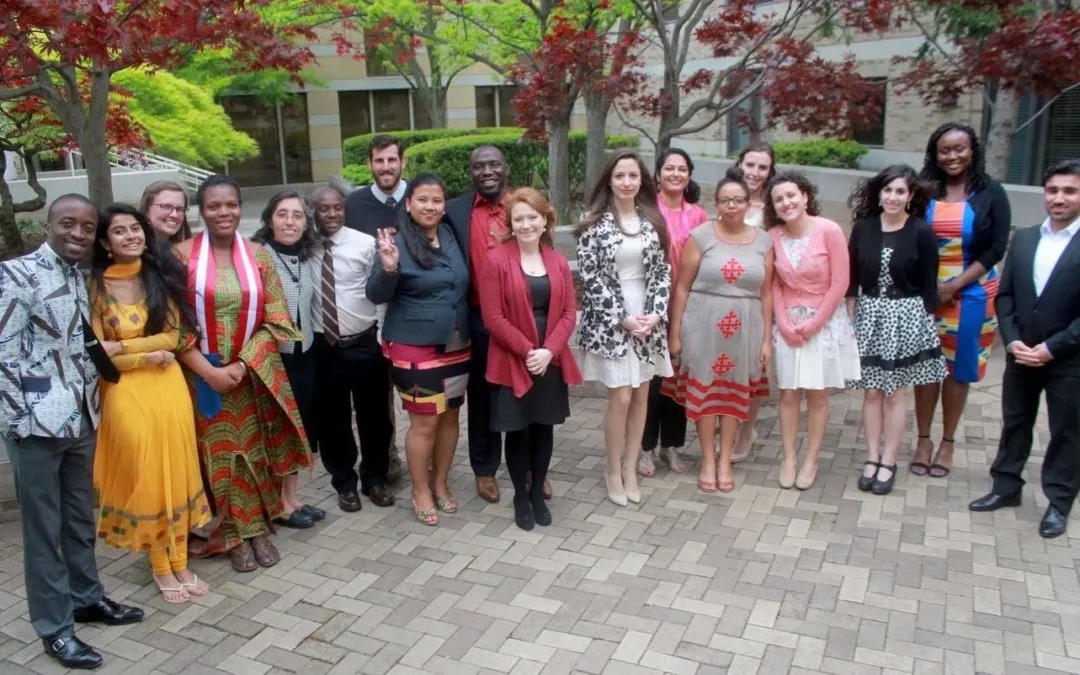Empowering youth as agents of peace and security is essential for achieving sustainable development and peace in countries with a young population. However, quantifying the impact of youth-led and adult-supported interventions has been a challenge. In this blog post, we delve into a proof-of-concept study conducted in Kenya, which analyzes the impact of peacebuilding programs using the Social Return on Investment (SROI) methodology. The findings shed light on the value created by these interventions and highlight the need for a shift in mindset when evaluating their effectiveness.
The Growing Importance of Youth, Peace, and Security:
The youth, peace, and security (YPS) agenda has gained significant traction across policy, funding, and practice communities. Recognizing the pivotal role of young people in preventing violence and sustaining peace, it is crucial to assess the impacts of youth-led and youth-supporting peacebuilding interventions accurately. By understanding the value of these programs, we can ensure effective support for youth-driven initiatives and foster sustainable peace.
Introducing the Social Return on Investment (SROI) Methodology:
Traditional economic evaluations often fall short of capturing the holistic value of peacebuilding interventions. To address this, a research team led by the Institute on Inequalities in Global Health at the University of Southern California, in collaboration with Search for Common Ground and multiple partners, conducted a proof-of-concept study using the SROI methodology. This stakeholder-centered participatory approach offers a more comprehensive understanding of impact by considering the perspectives of affected communities, practitioners, and standard measures.
Methodology and Findings:
The study focused on evaluating the impact of four youth-led and youth-supporting peacebuilding interventions implemented across various counties in Kenya between 2015 and 2021. Through a mixed-methods approach, including program report reviews, qualitative data collection (focus groups and interviews), and quantitative data collection (surveys), the research team gathered evidence for each evaluation.
Understanding Stakeholder Perspectives:
Central to the SROI analysis was understanding how interventions affected key stakeholders. Through consultations with youth participants, their families, community influencers, religious leaders, trainers, private sector businesses, and program staff, a range of outcomes emerged. Stakeholders highlighted the importance of increased networking and opportunities, becoming upstanding members of society, and building capacity for peacebuilding as significant outcomes resulting from the programs.
Quantifying Value: Cost-Based and Stakeholder-Stated Preference Valuation:
To quantify the value of outcomes, the study employed two approaches: cost-based valuation and stakeholder-stated preference valuation. The cost-based valuation, using financial proxies found in the literature, revealed an overall social return on investment of $1.54 for every dollar invested. However, due to limited literature and a narrow perspective on value, the utility of these results is restricted. On the other hand, the stakeholder-stated preference valuation, which directly incorporated stakeholders’ perspectives through focus groups, interviews, and surveys, showed an overall social return on investment ranging from $5.20 to $10.07 for every dollar invested. This approach offered a more comprehensive view of the outcomes and demonstrated that the value created by peacebuilding programming exceeded the investments.
Key Recommendations for Future Programming:
Based on the study’s findings, several recommendations emerged to improve future peacebuilding programs:
Design programs in consultation with stakeholders to address their specific needs and preferences.
Extend the duration of desired outcomes to ensure a longer-lasting impact.
Increase engagement with private sector stakeholders to enhance collaboration and value creation.
Collect and respond to feedback from stakeholders, including addressing any negative outcomes experienced.
This groundbreaking study, employing the SROI methodology, provides valuable insights into the impact of youth-led and youth-supporting peacebuilding programs in Kenya. The findings demonstrate the significant value created by these interventions and highlight the need for comprehensive evaluations that consider the perspectives of all key stakeholders. By empowering Kenyan youth and investing in their peacebuilding initiatives, we can drive sustainable change and foster a more peaceful society. Let us embrace this evidence-based approach to support youth’s vital role in building a peaceful future for all.
Full article: https://cnxus.org/resource/building-evidence-for-peacebuilding-investments-a-snapshot-of-youth-led-youth-supporting-peacebuilding-programs-in-kenya-yields-five-to-ten-fold-social-returns-on-investment-sroi/
Ans- Email: [email protected]
LinkedIn: https://www.linkedin.com/in/nabila-abbas-431
Twitter: https://twitter.com/BellaAviator
Facebook: https://www.facebook.com/BellaBaloach
Author: Joana Prodani

